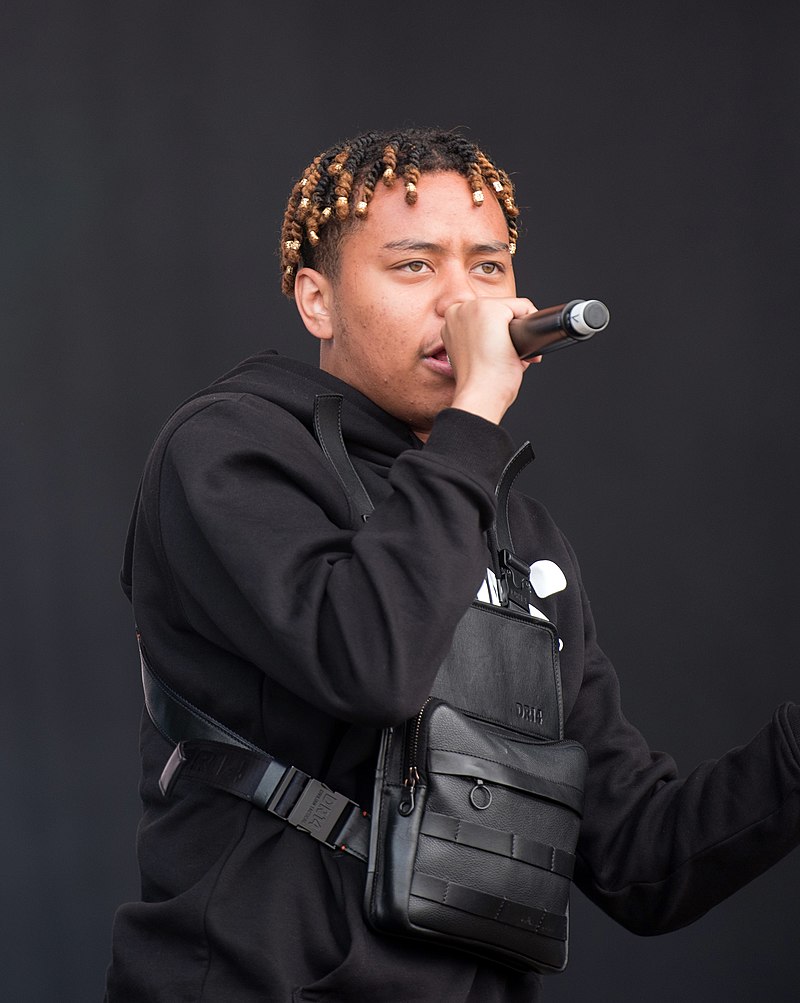
Conclusion
Still, amid an environment of White privilege and a record industry that endeavors to market a stereotypical image of the Black experience from some Black artists of the day, much progress needs to be made. At the same time, we can celebrate past successes and work toward lifting up other Black voices in the record industry. Even now, young and very promising artists are emerging. One of these is Cordae Amari Dunston (known professionally as Cordae), a Maryland native who started rapping at the age of fifteen. At twenty-four, he'd already earned two Grammy awards and recently released his album, The Lost Boy. According to Will Schube, columnist at Pitchfork, the work splits its time between thankfulness and victory laps.
On first single " Have Mercy," Cordae turns his gaze outward. Over a " Mask Off "-inspired flute sample and 808, Cordae begins, "Sweet lord please have mercy/Baby Jesus please save us." It's a call to join, and in the hands of a less-deft rapper, this sort of proselytizing would come off as saccharine at best, invasive at worst. But Cordae seems to come only from a place of appreciation, bursting with joy at a newfound life that formerly looked bleak: YBN Cordae: The 'Lost Boy' Who Finally Found Inner Peace.
The primacy of Blackness in hip-hop's formation and evolution-and the importance of acknowledging this-nurtures alliances as well as shared political interests and commitments-to-action among its most ardent affiliates. Yet, at its basis, hip-hop utilizes intertextually positioned continuities and ruptures to generate sensation and spectacle-spotlighting individual and community self-worth-through the generative practices of turning consumption into new modes of cultural production and meaning-making (Harrison and Arthur 2019, 12).
Though not hip-hop or R & B music, the following song takes up the gauntlet of creating music that expresses the Black experience in contemporary America. Joel Thompson, an African American composer, was commissioned to compose a work dealing with police brutality, a gruesome supremist act that yet plagues the African American community. A reference to the seven last words of Christ dying on a cross, Thompson utilizes the last words of seven victims in a society engrossed in hatred and bitterness, racism, and a continued effort at global white supremacy.
The SSO and featured guest University of Michigan Men's Glee Club, led by conductor Eugene Rogers, premiered a newly commissioned fully orchestrated version of "The Seven Last Words of the Unarmed," made possible in part with the support of Linda and Stuart Nelson. This is a multi-movement work honoring the lives of Michael Brown, Trayvon Martin, Oscar Grant, Eric Garner, Kenneth Chamberlain, Amadou Diallo, and John Crawford. Please listen to the performance. Below we list the time stamps where each victim of police brutality is honored as well as the age of their death:

"The Seven Last Words of the Unarmed" | SphinxConnect 2017 [ 00:00-00:00 ]
- 1. Kenneth Chamberlain (age 66): "Why do you have your guns out?" 0:00

"The Seven Last Words of the Unarmed" | SphinxConnect 2017 [ 00:00-00:00 ]
- 2. Trayvon Martin (age 16): "What are you following me for?" 2:14

"The Seven Last Words of the Unarmed" | SphinxConnect 2017 [ 02:15-00:00 ]
3. Amadou Diallo (age 23): "Mom, I'm going to college." 3:33

"The Seven Last Words of the Unarmed" | SphinxConnect 2017 [ 03:34-00:00 ]
- 4. Michael Brown (age 18): "I don't have a gun. Stop shooting." 6:44

"The Seven Last Words of the Unarmed" | SphinxConnect 2017 [ 06:44-00:00 ]
- 5. Oscar Grant (age 22): "You shot me! You shot me!" 7:39

"The Seven Last Words of the Unarmed" | SphinxConnect 2017 [ 07:40-00:00 ]
- 6. John Crawford (age 22): "It's not real." 9:06

"The Seven Last Words of the Unarmed" | SphinxConnect 2017 [ 09:07-00:00 ]
- 7. Eric Garner (age 43): "I can't breathe." 11:30

"The Seven Last Words of the Unarmed" | SphinxConnect 2017 [ 11:30-00:00 ]






